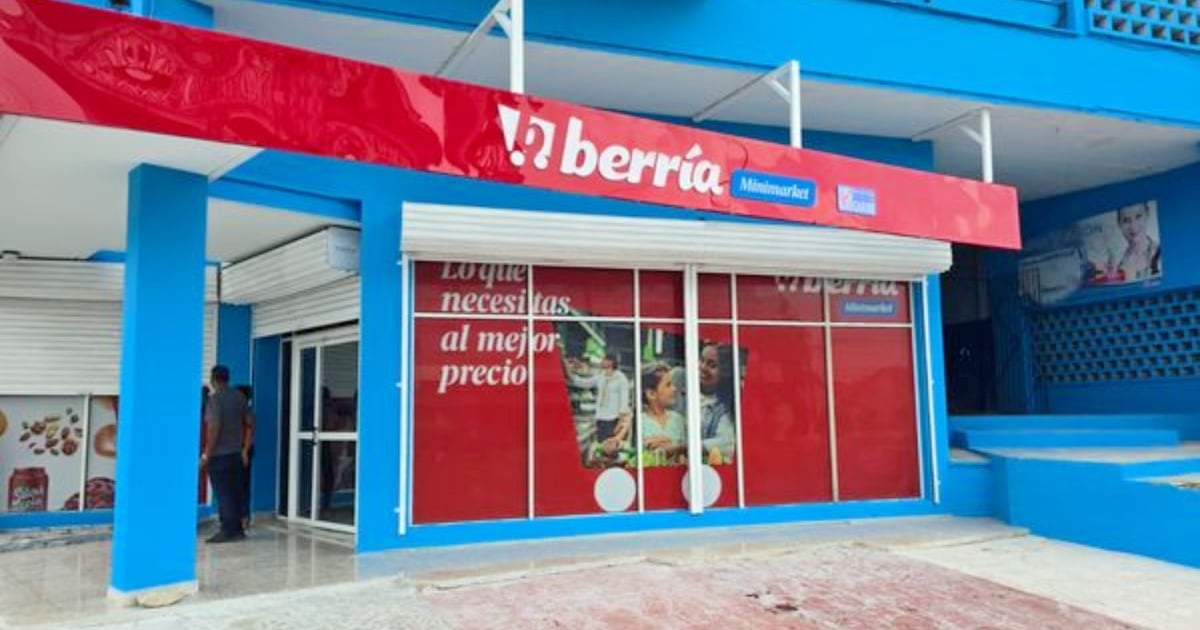On Friday, a new store operating in freely Convertible Currency (MLC) was launched in the Plaza de la Revolución municipality, hoping to source its products from a supplier based in the Basque region. Known as "Amistad 26," the market, now also referred to as the Caribe-Berría minimarket, stands at the corner of Avenida 26 and Zapata as a result of a partnership between the Caribe Stores Chain and the Basque supplier Aldaketa.
During the reopening ceremony, the store's team pledged to maintain consistent quality service, while the supplier committed to enhancing product selection and pricing to better meet the needs of the population. However, such announcements, filled with triumphant rhetoric and slogans like "Unity + Motivation = Victory," fail to mask an evident reality: a significant portion of the Cuban population lacks access to MLC, effectively excluding them from shopping at these establishments.
The Economic Exclusion Behind the Facade
The inauguration included statements celebrating the collaboration between foreign suppliers and national authorities as a triumph. This narrative overlooks the structural challenges and limitations of an economy that leaves a large segment of its people unable to access essential goods and services.
Díaz-Canel's empty promise from 2020, explaining the necessity of MLC stores to supply those in national currency, is long forgotten. Despite "incredible" offers and promises of a customer-focused service, MLC stores remain a stark reminder of the economic inequalities that pervade Cuban society. For those without access to MLC, these openings serve as a bitter reminder of the daily struggles to meet basic needs.
Origins of Convertible Currency Stores
Freely convertible currency stores emerged in Cuba in 2019 as a government measure to attract foreign currency amidst a deepening economic crisis and severe shortages of basic goods. Initially, these stores were introduced as a solution to ensure access to high-demand items—such as appliances, imported foods, and hygiene products—using foreign currencies like dollars, euros, or international cards.
However, over time, these stores have become a source of social inequality, as many Cubans lack direct access to foreign currencies, relying instead on remittances or the informal market to shop there. Additionally, they have exacerbated shortages in stores operating with Cuban pesos by diverting basic products to the MLC system, creating a dual market that has further complicated economic difficulties for the majority of the population.
A Spanish Supplier with Decades of Experience
Aldaketa is a Spanish company with over 30 years of experience in distributing and marketing food products for Cuba. The company primarily focuses on serving the hotel sector and supermarkets, according to information on their website. Operating from a logistics center in Galdakao (Bizkaia, Spain), Aldaketa manages orders efficiently through its warehouses and offices.
The company frequently ships to Cuba, with the capacity to send over 500 forty-foot containers annually from Bilbao to the Port of Mariel, in direct voyages lasting 19 days. Aldaketa claims to market over 800 varieties of dry, refrigerated, and frozen foods. They also offer customizable container options, combining up to 80 different products per shipment. The company hosts sales warehouses in Berroa, Havana, and its Cuban headquarters is located in Miramar, in the Playa municipality of Havana.
